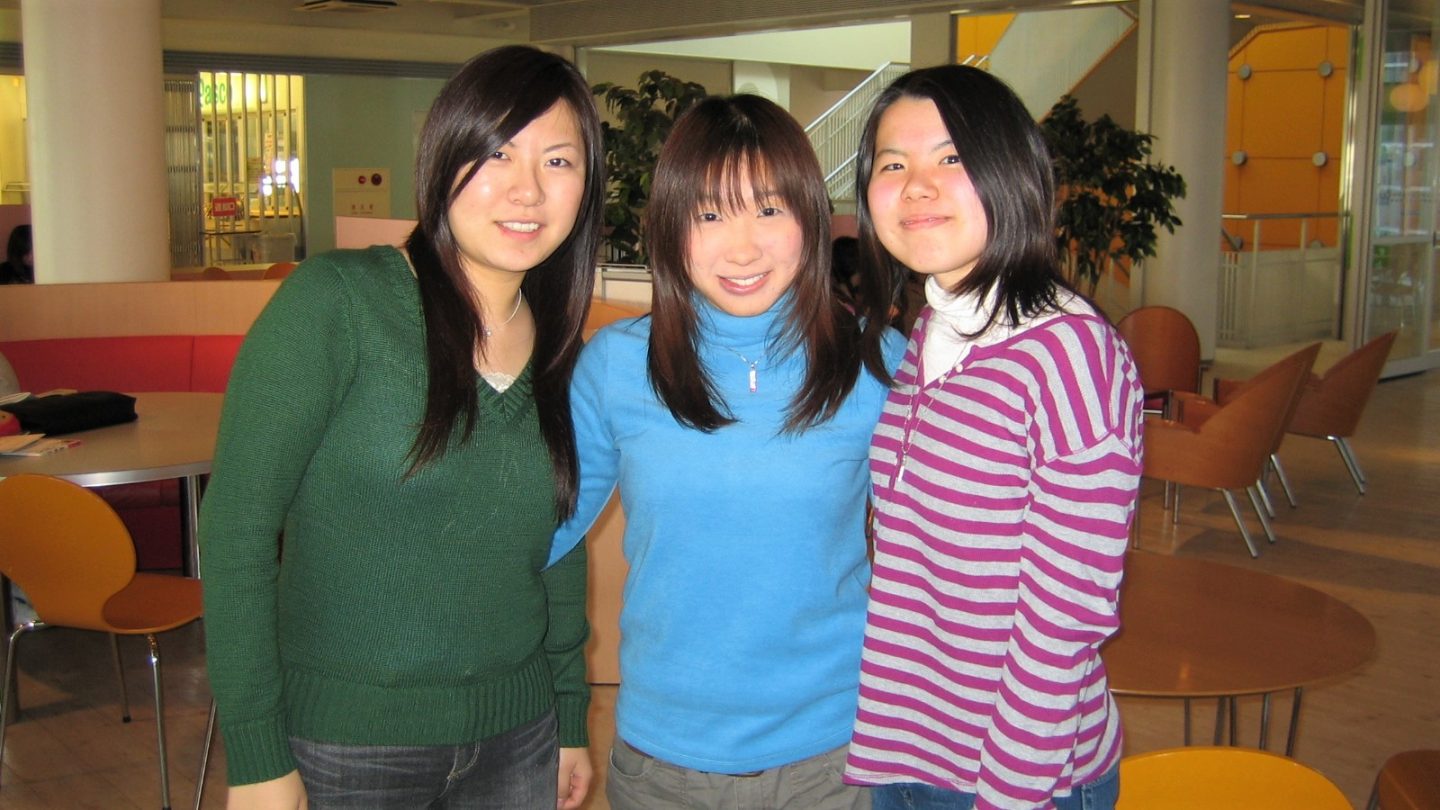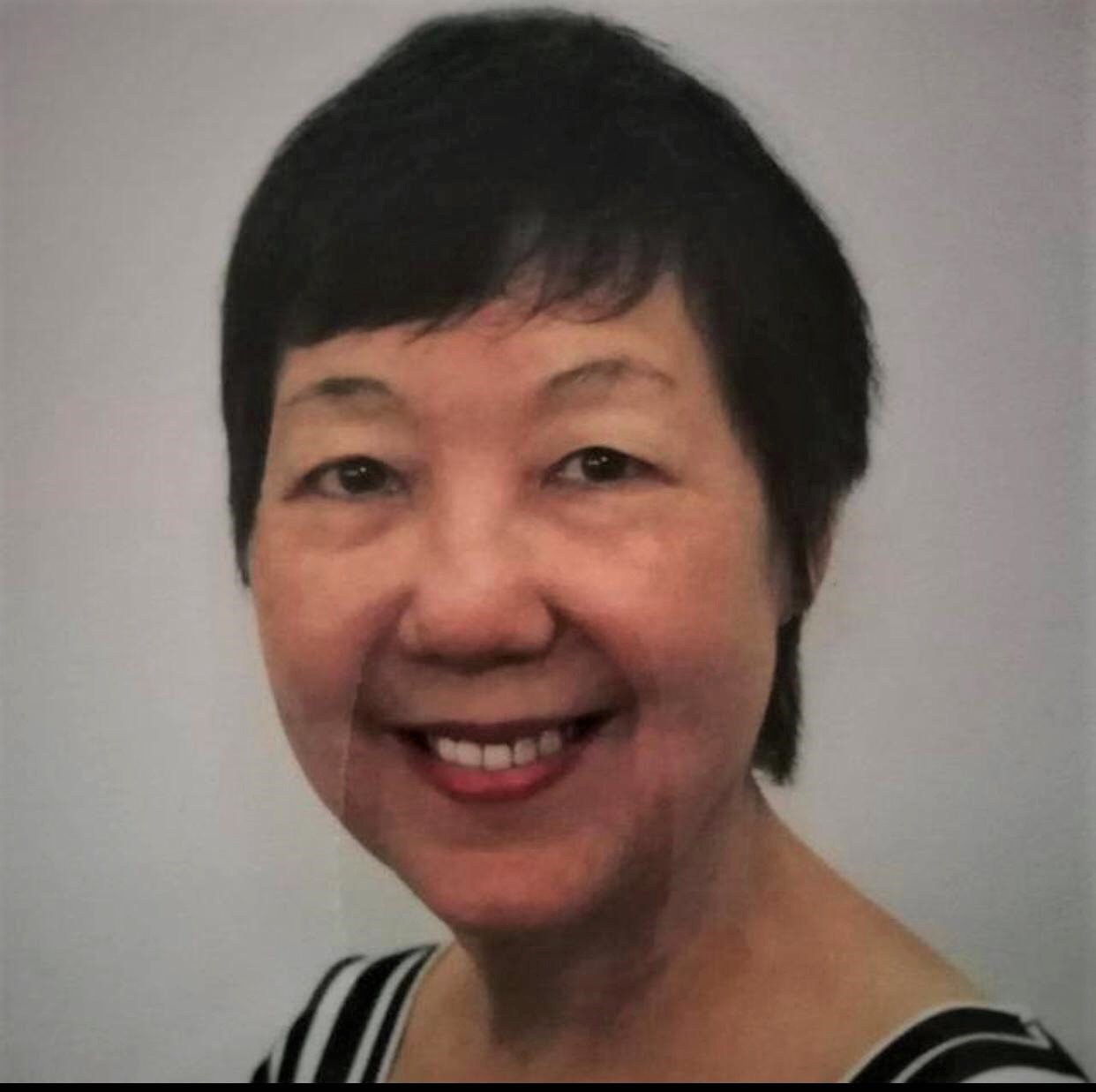Loneliness, setting boundaries, finding fulfilment: Real struggles and practical tips from singles on living a vibrant life
by Christine Leow // April 19, 2021, 4:58 pm

“If you ask me, ‘Do you still have that desire to get married?’ Absolutely. But does that desire paralyse you and cause you to be unable to walk and love and enjoy and do ministry and love the Lord? Not any more," says Isaac Ong. Photo courtesy of Isaac Ong.
Nearly 350 people, mostly singles (90%), joined Zoom chat show Salt&Light Family Night (February 23) to talk about what was on their hearts – shining as a single.
The concerns were candid. Top on the list was “dealing with the insecurity of self-identity”. Two in three marked it among their top three concerns as singles. Dealing with sexual sin and dealing with the uncertainty of life purpose tied in second place with more than half ranking them among their top three concerns.
The panellists – Dr Florence Tan, Pamela Koh and Isaac Ong – were authentic, opening up about their struggles with sexual desires, battles with loneliness and thoughts of being forever single.
“I can really trust God because He loves me, He makes no mistakes with me in something that is so important as marriage.”
Dr Tan worked for 30 years with discipling ministry Navigators and lectured for 18 years at the Singapore Bible College. At 73, she leads a packed and fulfilled life teaching and discipling people in person and over Zoom, and oversees cell groups in her church.
Koh, 40, was a missionary to Japan for six years before returning to Cru Singapore to be their in-house counsellor. Last year, she saw “one of her dreams come true” when she set up Cru’s counselling arm for tertiary students, Thrive.Sg, to promote emotional well-being, healing and resilience.
Ong is a multi-hyphenate. The 33-year-old is a singer who was in the finals of both Channel 5’s The Final 1 and The Voice (SG/MY). A champion of social justice, he also runs his own social enterprise Colours Global and works with youth ministries in churches.
In this second part of the frank talk on 2021’s second edition of Salt&Light Family Night, we share practical tips on how to live the single life to its fullest.
How can a single person flourish in a world of couples?
#1 Pursue God
Said Ong: “I really, really keep my eyes on the prize. I really go, ‘Lord, it is You that I truly desire. It is You, O God, that makes me whole.’ I’ve seen a lot of beauty in the intimacy with God.”
“God loves us so much, He is always trying to pursue us.”
He shared of times when he felt God was asking Ong to spend time with Him for days. On one occasion, Ong wanted to go paddle boarding to “spend time with Him, that’s my intimate moment with Him”.
But a paddle board cost a hefty $540. As he was contemplating whether to spend that much, a friend messaged him to say that while praying, he discerned God telling him to give Ong $540.
“And the instruction was, ‘Go and spend time with God’. I bawled my eyes out,” said Ong.
“We have a God who pursues us and keeps us and makes us whole.”
Pursuing God is one practical way of experiencing God’s love, said Koh.
“God loves us so much, He is always trying to pursue us. When we cry out to God and say we really want to have a tangible experience and encounter God’s love, God in His way will reveal His love to you.”
#2 Like and develop yourself
Koh talked about the loneliness she felt when she returned to Singapore in her 30s after spending six years serving God in Japan.
Many of her friends had gotten married and started their own families. There was also “a gap” in her relationship with her family because of the years away. Finding a cell group was tough as well.
But as she pursued her Masters in Counselling, she learnt that she needed to be comfortable with herself, to love and accept herself as God does and to know “what it means to be His daughter, not just in my head but in my heart”.
Said Koh: “Other than a good relationship with God, we need to develop a good relationship with ourselves.

Pamela (centre) with the girls she discipled while working in Japan as a missionary. Photo courtesy of Pamela Koh.
“You are with yourself 24/7. If you don’t like yourself, you are hard on yourself, you hate yourself, you are critical about yourself, then it will make the journey of being single harder because you won’t enjoy being alone very much.”
That, explained Koh, might lead to looking for others to meet all our needs which would lead to unhealthy co-dependent relationships.
“If you don’t like yourself … then it will make being single harder because you won’t enjoy being alone very much.”
One way she has learnt to love and take care of herself has been to pick up hobbies that are good for her soul such as art and gardening.
“Every season of your life, God has a purpose for it. I see singlehood as God’s preparation for His purpose, for eternity. It is a time to work on yourself, to build a relationship with Him.”
Dr Tan swims daily. That is her “me time and God time”. She cooks as well and uses food to connect with people. “Look for areas that you find enjoyment in or get satisfaction from.”
But Koh cautioned: “It’s not about being busy or packing your schedule. If we are not meeting our needs but numbing our loneliness with busy-ness, then our needs are not met and we are more vulnerable.”
#3 Have a community
“God created us for relationships, He created us to want intimacy,” said Koh.
So, have friends, she said. Not just those with whom you can do things but those with whom “you feel safe to be vulnerable and yourself”.
“Be involved in changing dirty diapers. Take a toddler for a walk. Do a Tik Tok video with teens!”
“Then, you can go authentically to them to say you are struggling. That is when your need for intimacy is met.”
Dr Tan has excelled in this. She has friends who are single as well as those who are married. In fact, she is friends with their families, too, some for two generations – she has several god-children and god-grandchildren.
Instead of asking to be included in a community, she suggested offering help to be part of the community.
“Be involved in changing dirty diapers. Take a toddler for a walk. Go to the movies with the teens or do a Tik Tok (video) with them!
“I’ve had the opportunity to get involved with married people and savour a bit of married life.”
#4 Have a sense of purpose
“Purpose gives us satisfaction,” said Koh.
She sees a purpose in her single status. “If I thrive as a single, if I live well as a single, I am testifying that Jesus is more than enough for me and Jesus is more than enough to satisfy all my needs.”
How do I deal with the fear that I will never find a life partner?
#1 Face your fears
Find out why you feel the way you do, said Ong. Don’t sweep it aside because then it will “keep compounding”.
“Then when there is no one else, fear rears its ugly head and it will completely consume you.”
“It doesn’t have the ability to paralyse as it did when I was younger.”
Sharing his experience, Ong said that one of the reasons he did not want to deal with his fear was that he felt that being “okay with singleness means I’m going to be celibate”.
“But being comfortable with our singleness doesn’t mean you are not ever going to be marrying somebody.”
“Genuinely, I’m okay. I can see myself as being single for the rest of my life. I’m not saying this because I’ve had a good one-hour moment. It has been on my heart for the past few years.
“If you ask, ‘Do you still have that desire to get married?’ Absolutely. But does that desire paralyse you and cause you to be unable to walk and love and enjoy and do ministry and love the Lord? No.
“It doesn’t have the ability to paralyse as it did when I was younger. I think that is important in addressing the fear.”
#2 Have supportive friends
Reflections like these can be frightening. So, Ong encouraged getting support.
“Gather people around you who are healthy to have these conversations.”
#3 Understand your disappointment
Ong was honest about his struggles. “There were many moments that allowed me to feel the weight of singleness.”
“Pain at the thought of remaining single may actually reveal needs that have to be dealt with.”
But he had a positive view even of the self conflict: “Struggling need not be a bad thing because it simply means there is something of worth and value, and something worth fighting for.”
Pain at the thought of remaining single may actually reveal needs that have to be dealt with, said Ong, much like how stepping on a nail hurts and makes you realise you have to pull the nail out.
“You will feel the pain. Ask the Lord, ‘Will You open the eyes of my heart? Will You help me to see singleness rightly?’”
Unless singleness is viewed with the right perspective, there may be too much hope pinned on marriage to satisfy the “many things you feel that singleness does not offer”. That hope may not be well placed.
“The time of singleness is a beautiful time to settle these things. I don’t see being single as a lesser or worse portion anymore. I’ve come to see what a good gift it really is to my daily walk with the Lord.”
#4 Allow yourself to grieve
Sometimes, realising that singleness is your path may cause deep disappointment. Koh talked about seeing that as a loss and taking the time to grieve over it.
“Process the anguish, the disappointment. It’s a grieving process as well. Allow yourself to grieve because in the process of grieving, that’s where we come to an understanding the situation and we can move towards acceptance.”
#5 Guard your mind
Said Dr Tan: “My attitude is that I can really trust God because He loves me, He makes no mistakes with me in something that is so important as marriage.”
Looking into the Word of God has helped her establish that firm stand. She is also careful to guard her mind.
“Fear starts in the mind and if I allow my mind to think a certain way, it can go a very long way in a certain path where it may not be where God may lead at all.”
#6 Have an eternal perspective
When this mortal life is all we think we have, not being married can feel like a life without purpose. But, as Christians, we have something else, said Ong.
“The life we live is a scratch in eternity. The life we live now is temporary. There is an eternal treasure.
“That is why we live and breathe and that is who we are. That helps bring in alignment to our fears.”
How do I deal with sexual desires as a single?
#1 Settle the issue with God first
“It was hell in my teens, it was ridiculous in my early 20s, it was very painful in my late 20s,” confessed Ong.
“There were many, many moments I was completely distraught in this area.”
That said, Ong does not think the struggle is unique to singles.
“The area of lust, physical intimacy and desire is also faced by people who are married. Complete healing and wholeness of one’s desire is not made complete simply because you have a partner.”
In fact, unless it is dealt with when single, the issues can return to haunt a marriage.
“During your singlehood, you begin to ask, ‘Where do I find that healing and wholeness? Is that sexual drive placed and aligned accordingly where it is love and not lust?’”
“The area of lust, physical intimacy and desire is also faced by people who are married.”
In his 20s, he “couldn’t differentiate” between the two, he said. It was as he neared his 30s that understanding dawned but not before a season of “complete exasperation” during which he wept for days for healing and wholeness.
“It comes with a lot of crying and it comes with a lot of failing and messing up and asking the Lord, ‘I need to see it in Your eyes and with Your lens.’
“My understanding of this is no longer founded upon, ‘Oh, a relationship is satisfying when you have somebody physical in your life.’ It is satisfying because I understand its place in the kingdom of the Lord.”
#2 Set boundaries
Ong, who ministers to youths, is especially careful when dealing with the opposite sex. He makes sure that someone else is in the conversation if he is engaging a girl. He avoids dealing with the opposite sex on a personal or private basis, but if he has to, he ensures it is done in a public setting.
“Especially for the females, I don’t text them every day or minister to them every day because you don’t know how it would fall. For that I get hated a lot.
“A lot of times the girls would be like, ‘You don’t care and you don’t love me.’ But sometimes you’ve got to do these things that really help.”
#3 Have accountability partners
If Ong is abroad, he makes sure there is someone to whom he is accountable.
Accountability partners do not just police you when “you are in trouble or close to trouble”.
“I’ve got people that I really, really trust and they know me. There are not many. There are about two or three people who know everything about me.
“Because they know, they check up on me, check in with me and hang out with me.”
But accountability partners do not just police you when “you are in trouble or close to trouble”.
“They know you and know where there are potential moments ahead to make sure they build bridges and friendship ties to say, ‘Let me keep walking you into a place of health.’”
#4 Don’t hide in guilt
Accountability partners are particularly important when you fail in your attempt to overcome temptation, noted Koh.
“Addictions particularly thrive because of the cycle of shame and guilt.”
“Be careful of the danger of shame and guilt when we do fall. If we allow the enemy to use that to keep our falling a secret, something kept in the dark, you give Satan more power over it.
“Addictions particularly thrive because of the cycle of shame and guilt.”
Instead, turn to your accountability partner, bring the matter into the light, be honest and “God is able to come in and minister His forgiveness”.
#5 Know your triggers
“Knowing ourselves is important,” said Koh. “I need to know what are my vulnerabilities, what are my triggers. Do I know, for instance, if I’m most vulnerable to temptation when I’m tired?
“I always ask myself, ‘This thing I am doing, is it drawing me closer to God or is it drawing me further away from God?’”
“If you are able to be more aware of your vulnerabilities, your temptations, then you can have a plan.”
When Koh feels vulnerable, she arranges to meet her good friends “to have somebody checking up on me, to have quality conversations”.
She also steers clear of triggers.
“I will not do well if I watch very romantic types of movies. If something I am consuming is going along that line, I need to draw a mental and emotional boundary because I know that is not going to help me.
“I always ask myself, ‘This thing I am doing, is it drawing me closer to God or is it drawing me further away from God?’”
#6 Have personal discipline
Discipline the mind, particularly when you are alone, said Dr Tan.
“The onus is on I, me, myself when I am alone. Or when I have some time, what do I do? These are times the personal discipline should be there, or else thoughts can run wild. The idle mind is the Devil’s workshop.”

Dr Florence Tan lives a dynamic life as a single woman who is integrated into loving communities. Photo courtesy of Dr Florence Tan.
Should I use online dating apps?
For the panellists, the answer is not a simple “yes” or “no”.
Koh acknowledges that online dating has worked for some Christian couples.
The issue, instead, is how it affects you emotionally.
Said Koh: “Does using the app, and swiping and talking to people get you in a state where emotionally you don’t do well – for instance, when you text somebody and somebody doesn’t bother to reply and it begins to bother you emotionally?
“If the app has a negative impact on your emotions and it affects how you are with God, then you need to evaluate if that is the best way to meet people.”
Added Ong: “A lot of these things are amplifications of who we are, what we desire, what we search for and what we long for.
“If someone is not secure, that can really destroy the identity of that person.”
“Social media is not inherently bad, but it amplifies the human heart and soul.”
Digital dating platforms lack accountability and make anonymity easier, which encourages frivolity so that people are “less careful with their steps”.
“What does that encourage? And whether there will be bad fruit from that kind of behaviour?
“There is this whole play of whether you receive a like, whether you are liked as you like somebody else. If someone is not secure, that can really destroy the identity of that person.”
The middle ground is best – not vilifying technology nor “throwing yourself at it” – but being aware of what it can do to you before you use the technology, agreed the three.
RELATED STORIES:
Buying a flat is now easier for singles, but what about finding a home in church?
We are all called to be single for a season – and we don’t know how long. How do we celebrate it?
Salt&LIght Family Night: My kids are fighting! How do I manage sibling rivalry?
It might begin with refusing to look at the new baby when he comes home. It could become a fight for mummy’s attention that grows into full-on fist fights.
Sibling rivalry – as long as there is more than one child in the family, there is potential for sibling rivalry. Older parents tell you it will blow over in time. Psychologists tell you it is normal and might even be healthy.
But, while your children are embroiled in daily squabbles, it can be frustrating and heart-breaking. How do you manage the bickering? How do you deal with the cries of “It’s not fair!”? How do you convey to your children that, despite their differences, they are equally loved and equally valued?
Join hosts Carol Loi and Alex Tee as they chat with their guests this month – parents with multiple children who come from large families – as they share tips, tales and authentic talk about managing sibling rivalry so that your children can grow up with a healthy sense of family and self esteem.
Date: April 27, 2021
Time: 8.30m-10pm
Cost: Free
Register at: http://bit.ly/SLFamilyNight27Apr
We are an independent, non-profit organisation that relies on the generosity of our readers, such as yourself, to continue serving the kingdom. Every dollar donated goes directly back into our editorial coverage.
Would you consider partnering with us in our kingdom work by supporting us financially, either as a one-off donation, or a recurring pledge?
Support Salt&Light



